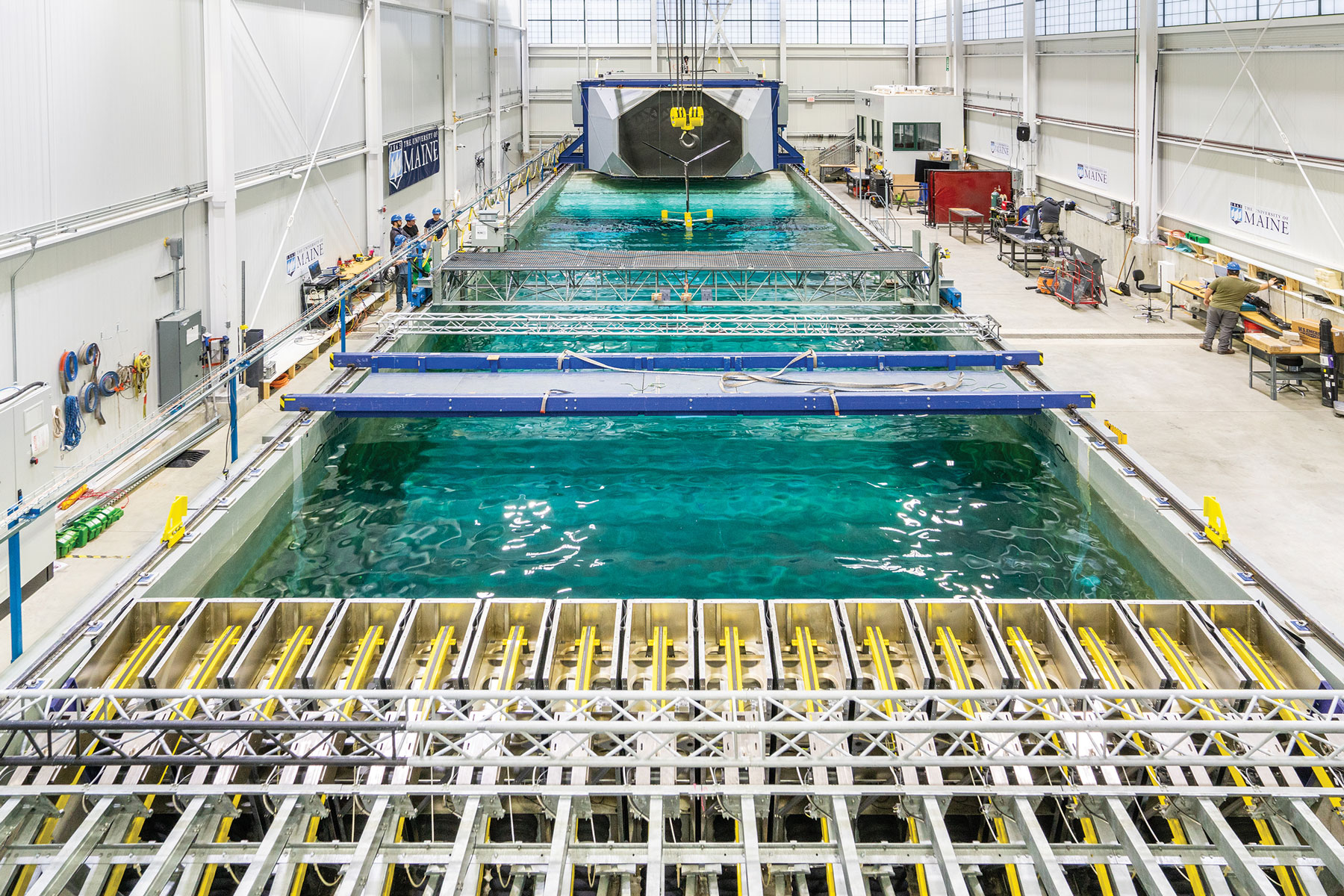
The Alfond W2 Ocean Engineering Laboratory recognized as an official TEAMER facility
The TEAMER program aims to accelerate promising marine energy technologies by providing access to select U.S. testing facilities within its network
 The Alfond W2 Ocean Engineering Laboratory at the University of Maine Advanced Structures and Composites Center is an official TEAMER (Testing Expertise and Access for Marine Energy Research) facility.
The Alfond W2 Ocean Engineering Laboratory at the University of Maine Advanced Structures and Composites Center is an official TEAMER (Testing Expertise and Access for Marine Energy Research) facility.
TEAMER is a three-year, $16 million program sponsored by the U.S. Department of Energy (DOE) Water Power Technologies Office and directed by the Pacific Ocean Energy Trust. TEAMER is a network of U.S. marine energy testing facilities with an existing track record with the DOE. The program provides access to testing facilities within its network to promising marine energy technology development projects. Access to testing facilities, like the Alfond W2 Ocean Engineering Laboratory, will be funded through 2-3 annual open funding calls over the next three years. There is currently an open call for TEAMER funding, due July 31, 2020, https://teamer-us.org/how-to-apply/.
The goal of the program is to accelerate marine energy technologies to the market to provide a carbon-free, renewable source of energy.
The Alfond W2 Ocean Engineering Lab is a scale offshore model testing facility located within the University of Maine Advanced Structures and Composites Center. It is equipped with a high-performance rotatable wind machine over a multidirectional wave basin. The lab accurately simulates towing tests, variable water depths, and scaled wind and wave conditions that represent some of the worst storms possible anywhere on Earth.
This world-class ocean engineering facility assists businesses and researchers in developing products for the marine economy. These products include improved boat and ship hulls; ocean energy devices such as wind, wave and tidal energy; aquaculture technology; oil and gas structures; waterfront infrastructure such as bridges, piers, docks and port facilities; as well as systems to protect coastal cities from effects of erosion and extreme storms.
To learn more, please visit our website: https://composites.umaine.edu/key-services/offshore-model-testing/
